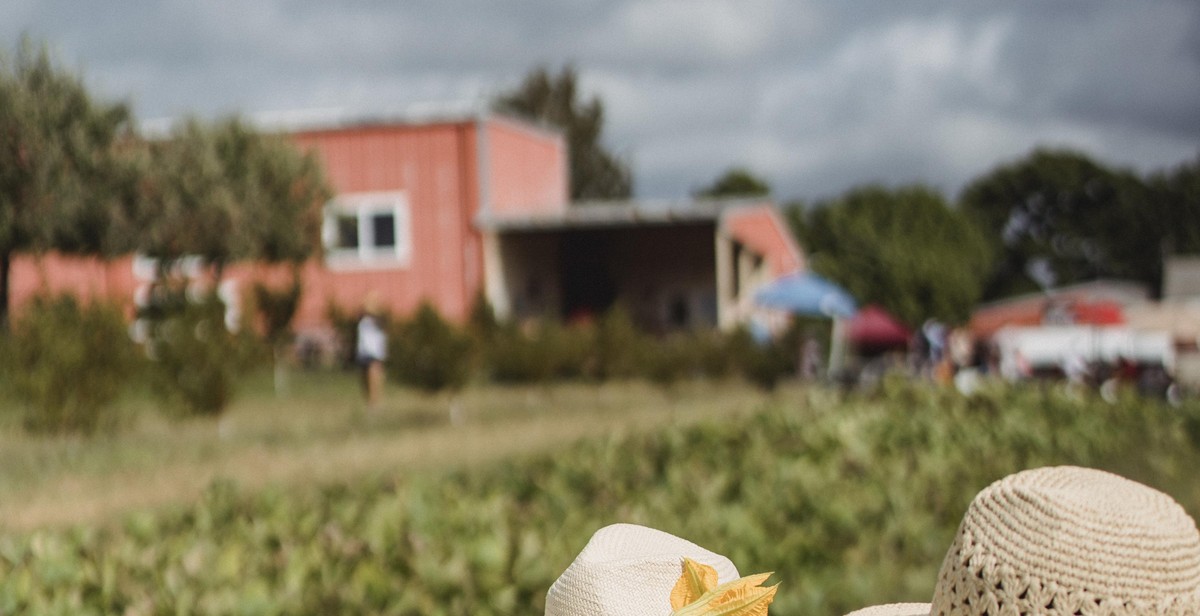Exploring Love: Understanding the Different Types of Love
Love is a complex and multifaceted emotion that has been studied and explored by psychologists, philosophers, and poets throughout history. While love is often associated with romantic relationships, it can also manifest in various forms, including familial love, platonic love, and self-love.
Understanding the different types of love can help us navigate our relationships and improve our overall well-being. For example, recognizing the importance of self-love can lead to increased self-esteem and better mental health, while understanding the dynamics of familial love can help us strengthen our relationships with our parents, siblings, and other relatives.
The Different Types of Love
There are several different types of love, each with its own unique characteristics and dynamics. Some of the most common forms of love include:
- Romantic Love: This type of love is often characterized by intense feelings of passion, attraction, and emotional connection.
- Familial Love: This type of love is based on the bonds between family members, such as parents, siblings, and grandparents.
- Platonic Love: This type of love is non-romantic and can involve deep emotional connections between friends, colleagues, or acquaintances.
- Self-Love: This type of love involves accepting and caring for oneself, including both physical and emotional aspects.
Exploring the different types of love can help us better understand ourselves and our relationships with others. In this article, we will delve deeper into each type of love and provide insights on how to cultivate and nurture these important connections in our lives.

What is Love?
Love is a complex emotion that has been studied and explored for centuries. It is a feeling of strong attachment or deep affection towards someone or something. Love can take many forms, ranging from romantic love to familial love, platonic love, and even self-love.
Defining Love
Love is often defined as an intense feeling of affection or a deep emotional connection. It is a powerful force that can bring people together and inspire them to do great things. Love is often associated with positive emotions such as joy, happiness, and fulfillment.
However, love can also be painful. When love is not reciprocated or when a relationship ends, it can lead to feelings of heartbreak, sadness, and grief. Despite the potential for pain, many people continue to seek out and experience love in their lives.
The History of Love
The concept of love has been explored throughout history in literature, art, and philosophy. Ancient Greek philosophers such as Plato and Aristotle wrote extensively about the different types of love, including romantic love, platonic love, and self-love.
In the Middle Ages, the idea of courtly love emerged, which was a chivalric code of behavior between knights and ladies. During the Renaissance, love became a popular theme in literature and art, with writers and artists exploring the complexities of love in their works.
Today, love continues to be a popular topic in popular culture, with movies, songs, and books exploring the many facets of love and relationships. Despite the changing times, the concept of love remains a constant in human experience.
Understanding the different types of love can help us navigate our relationships and bring more love and happiness into our lives.

Types of Love
Love is a complex and multifaceted emotion that can take on many different forms. Understanding the various types of love can help you navigate your relationships and build stronger connections with the people in your life. Here are the four main types of love:
Romantic Love
Romantic love is the type of love that most people are familiar with. It is the intense, passionate, and sometimes obsessive love that we feel for our romantic partners. Romantic love is characterized by a strong physical attraction, a desire for emotional intimacy, and a willingness to make sacrifices for the other person.
Platonic Love
Platonic love is a type of love that is not romantic or sexual in nature. It is the love that we feel for our friends, colleagues, and acquaintances. Platonic love is characterized by a deep emotional connection, mutual respect, and a shared sense of values and interests.
Familial Love
Familial love is the love that we feel for our family members. It is characterized by a strong sense of loyalty, a deep emotional connection, and a willingness to support and care for each other through thick and thin.
Self-Love
Self-love is the type of love that we feel for ourselves. It is the foundation for all other types of love, and it is essential for our well-being and happiness. Self-love is characterized by a deep sense of self-acceptance, self-worth, and self-care.
Understanding the different types of love can help you cultivate stronger and more fulfilling relationships with the people in your life. Whether you are seeking romantic love, platonic love, familial love, or self-love, remember that love is a journey, and it takes time, effort, and patience to build and maintain strong and healthy relationships.

The Science of Love
Love is a complex emotion that affects our brain, body, and behavior. Scientists have been studying love for years, and they have found that there are several chemicals in our bodies that are responsible for the feeling of love.
The Chemicals of Love
One of the most important chemicals in love is dopamine. Dopamine is responsible for the feeling of pleasure and reward. When we fall in love, our brain releases dopamine, which makes us feel happy and excited. This is why we feel so good when we are around someone we love.
Another chemical that is important in love is oxytocin. Oxytocin is sometimes called the “cuddle hormone” because it is released when we hug or cuddle with someone. It is also released during sex and childbirth. Oxytocin makes us feel connected to others and helps us bond with our partners.
Finally, there is serotonin. Serotonin is a neurotransmitter that regulates mood, sleep, and appetite. When we are in love, our serotonin levels drop, which can lead to obsessive thoughts and feelings. This is why we sometimes feel like we can’t stop thinking about our partners.
The Psychology of Love
Love is not just about chemicals, though. It is also about psychology. There are several theories about why we fall in love, including the attachment theory and the triangular theory of love.
The attachment theory suggests that we form attachments to our partners based on our childhood experiences with our parents or caregivers. If we had a secure attachment style with our parents, we are more likely to have a secure attachment style with our partners.
The triangular theory of love suggests that there are three components of love: intimacy, passion, and commitment. Intimacy refers to the emotional connection we have with our partners. Passion refers to the physical attraction and desire we have for our partners. Commitment refers to the decision to stay with our partners over the long term.
Overall, love is a complex emotion that involves both chemicals and psychology. By understanding the science of love, we can better understand why we feel the way we do when we are in love.

How to Cultivate Love
Building strong relationships is essential to cultivate love. Here are some tips to help you build strong relationships:
- Be present: Being present in the moment and giving your full attention to your partner is crucial in building a strong relationship. Put your phone down, turn off the TV, and focus on each other.
- Practice active listening: Listening is one of the most important aspects of communication in a relationship. Practice active listening by giving your partner your undivided attention, acknowledging their feelings, and responding appropriately.
- Show appreciation: Expressing gratitude and appreciation for your partner and their contributions to the relationship can go a long way in building a strong bond. This can be as simple as saying thank you for cooking dinner or recognizing their hard work at their job.
- Be willing to compromise: No two people are the same, and conflicts are bound to arise in any relationship. Being willing to compromise and find solutions together can help build a stronger relationship.
The importance of communication cannot be overstated when it comes to cultivating love. Here are some tips for effective communication:
- Be honest: Honesty is crucial in any relationship. Be honest about your feelings, needs, and wants, and encourage your partner to do the same.
- Be respectful: Respect is a cornerstone of any healthy relationship. Be respectful of your partner’s feelings and opinions, even if you don’t agree with them.
- Use “I” statements: Using “I” statements instead of “you” statements can help avoid blame and defensiveness. For example, instead of saying “You never listen to me,” say “I feel unheard when we don’t communicate.”
- Don’t assume: Assumptions can lead to misunderstandings and hurt feelings. Instead of assuming what your partner is thinking or feeling, ask them directly.
Practicing gratitude can also help cultivate love in a relationship. Here are some ways to practice gratitude:
- Express appreciation: As mentioned earlier, expressing appreciation for your partner and their contributions can help build a strong bond.
- Keep a gratitude journal: Writing down things you’re grateful for, including your relationship, can help you focus on the positive aspects of your life.
- Practice mindfulness: Mindfulness can help you stay present in the moment and appreciate the small things in life, including your relationship.
| Tip | Description |
|---|---|
| Be present | Being present in the moment and giving your full attention to your partner is crucial in building a strong relationship. Put your phone down, turn off the TV, and focus on each other. |
| Practice active listening | Listening is one of the most important aspects of communication in a relationship. Practice active listening by giving your partner your undivided attention, acknowledging their feelings, and responding appropriately. |
| Show appreciation | Expressing gratitude and appreciation for your partner and their contributions to the relationship can go a long way in building a strong bond. This can be as simple as saying thank you for cooking dinner or recognizing their hard work at their job. |
| Be willing to compromise | No two people are the same, and conflicts are bound to arise in any relationship. Being willing to compromise and find solutions together can help build a stronger relationship. |
| Be honest | Honesty is crucial in any relationship. Be honest about your feelings, needs, and wants, and encourage your partner to do the same. |
| Be respectful | Respect is a cornerstone of any healthy relationship. Be respectful of your partner’s feelings and opinions, even if you don’t agree with them. |
| Use “I” statements | Using “I” statements instead of “you” statements can help avoid
ConclusionIn conclusion, love is a complex emotion that takes on many different forms. Understanding these different types of love can help you navigate relationships more effectively and build stronger connections with the people in your life. From the passionate and intense feelings of romantic love to the deep and enduring bonds of familial love, each type of love brings its own unique set of challenges and rewards. By recognizing the signs of each type of love, you can better understand your own emotions and those of the people around you. Remember, love is not a one-size-fits-all emotion. It is a deeply personal experience that varies from person to person and relationship to relationship. By exploring the different types of love and understanding their nuances, you can develop a deeper appreciation for the complex and beautiful emotion that is love.
By following these tips, you can build stronger, more meaningful relationships with the people in your life and experience the full range of love’s many different forms. |
